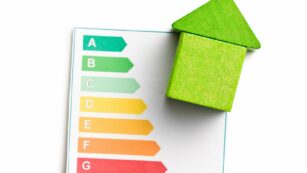Understanding the ebb and flow of energy levels throughout the menstrual cycle can be a game-changer for many women. The hormonal shifts that occur each month don’t just impact physical health, they also influence mental clarity, mood, and overall vitality. Recognizing these patterns can help individuals optimize their daily routines and improve their well-being. During different phases of the menstrual cycle, energy levels can vary significantly. For instance, the follicular phase often brings a surge of energy and motivation, while the luteal phase might lead to fatigue and a need for more rest. By tuning into these natural rhythms, women can better manage their schedules, workouts, and self-care practices, aligning them with their body’s needs. The menstrual phase marks the beginning of the new cycle, with bleeding lasting 3-7 days. Hormone levels drop, and energy is at its lowest. Rest, gentle movement, and self-care are crucial. Listening to the body’s needs during this phase supports overall well-being.
Menstrual Cycle Energy Levels
 Energy fluctuations during the menstrual cycle can affect daily life in various ways. Different phases of the cycle exhibit distinct energy patterns, influenced by hormonal changes. Recognizing these energy shifts provides insights into optimal times for productivity, exercise, and rest. The follicular phase starts on the first day of menstruation and lasts until ovulation. Estrogen levels rise, increasing energy, mood, and cognitive function. Women often experience enhanced motivation and physical stamina during this phase. This period is ideal for tackling challenging tasks, engaging in high-intensity workouts, and initiating new projects. Ovulation occurs mid-cycle, around day 14 in a 28-day cycle. Energy levels peak due to the surge in luteinizing hormone (LH). Many women feel their best, with heightened confidence and social inclination. It’s a good time for networking, presentations, and intensive physical activities. The luteal phase follows ovulation and lasts until menstruation begins, around days 15-28. Progesterone rises, leading to a gradual decrease in energy.
Energy fluctuations during the menstrual cycle can affect daily life in various ways. Different phases of the cycle exhibit distinct energy patterns, influenced by hormonal changes. Recognizing these energy shifts provides insights into optimal times for productivity, exercise, and rest. The follicular phase starts on the first day of menstruation and lasts until ovulation. Estrogen levels rise, increasing energy, mood, and cognitive function. Women often experience enhanced motivation and physical stamina during this phase. This period is ideal for tackling challenging tasks, engaging in high-intensity workouts, and initiating new projects. Ovulation occurs mid-cycle, around day 14 in a 28-day cycle. Energy levels peak due to the surge in luteinizing hormone (LH). Many women feel their best, with heightened confidence and social inclination. It’s a good time for networking, presentations, and intensive physical activities. The luteal phase follows ovulation and lasts until menstruation begins, around days 15-28. Progesterone rises, leading to a gradual decrease in energy.
Phases Of The Menstrual Cycle
Understanding the phases of the menstrual cycle assists in managing energy levels efficiently. Each phase uniquely impacts energy, mood, and cognitive function. The menstrual phase spans days 1-5 of the cycle. During this time, estrogen and progesterone levels drop, leading to reduced energy and potential fatigue. Women benefit from prioritizing rest and engaging in gentle activities like yoga or walking. The follicular phase begins from day 1 of menstruation and continues until ovulation, around days 6-14. Estrogen levels rise, enhancing energy, mood, and cognitive function. This period suits high-intensity workouts, challenging tasks, and creative projects. The ovulation phase occurs around day 14 when luteinizing hormone surges. Energy levels peak, making it an excellent time for networking, social events, and intensive activities. Women often feel more confident and extroverted during this phase. Fatigue, irritability, and reduced concentration may occur. Prioritizing restorative activities, light exercise, and stress management can help maintain balance during this phase.
mood, and cognitive function. The menstrual phase spans days 1-5 of the cycle. During this time, estrogen and progesterone levels drop, leading to reduced energy and potential fatigue. Women benefit from prioritizing rest and engaging in gentle activities like yoga or walking. The follicular phase begins from day 1 of menstruation and continues until ovulation, around days 6-14. Estrogen levels rise, enhancing energy, mood, and cognitive function. This period suits high-intensity workouts, challenging tasks, and creative projects. The ovulation phase occurs around day 14 when luteinizing hormone surges. Energy levels peak, making it an excellent time for networking, social events, and intensive activities. Women often feel more confident and extroverted during this phase. Fatigue, irritability, and reduced concentration may occur. Prioritizing restorative activities, light exercise, and stress management can help maintain balance during this phase.
Energy Levels During Each Phase
 Energy levels fluctuate during the menstrual cycle, influenced by hormonal changes. Knowing how these changes impact energy can help women manage their activities and routines more effectively. The menstrual phase, encompassing days 1-5, is marked by a decline in estrogen and progesterone levels. This hormonal drop leads to lower energy levels and increased fatigue. Gentle activities like yoga and walking are beneficial during this phase as they promote relaxation without exerting the body. The follicular phase, spanning from day 1 of menstruation to ovulation (days 6-14), sees a rise in estrogen. This increase boosts energy, mood, and cognitive function. High-intensity workouts and challenging tasks are ideally performed during this phase due to the heightened energy and motivation. Understanding the menstrual cycle’s impact on energy levels empowers women to make informed decisions about their daily activities. Hormonal fluctuations play a significant role in determining energy, mood, and cognitive function. By aligning their routines with these natural cycles, women can enhance productivity and well-being. Recognizing the need for rest during low-energy phases and capitalizing on high-energy phases can lead to a more balanced lifestyle. Embracing this knowledge helps women navigate their cycles with greater ease and confidence.
Energy levels fluctuate during the menstrual cycle, influenced by hormonal changes. Knowing how these changes impact energy can help women manage their activities and routines more effectively. The menstrual phase, encompassing days 1-5, is marked by a decline in estrogen and progesterone levels. This hormonal drop leads to lower energy levels and increased fatigue. Gentle activities like yoga and walking are beneficial during this phase as they promote relaxation without exerting the body. The follicular phase, spanning from day 1 of menstruation to ovulation (days 6-14), sees a rise in estrogen. This increase boosts energy, mood, and cognitive function. High-intensity workouts and challenging tasks are ideally performed during this phase due to the heightened energy and motivation. Understanding the menstrual cycle’s impact on energy levels empowers women to make informed decisions about their daily activities. Hormonal fluctuations play a significant role in determining energy, mood, and cognitive function. By aligning their routines with these natural cycles, women can enhance productivity and well-being. Recognizing the need for rest during low-energy phases and capitalizing on high-energy phases can lead to a more balanced lifestyle. Embracing this knowledge helps women navigate their cycles with greater ease and confidence.

